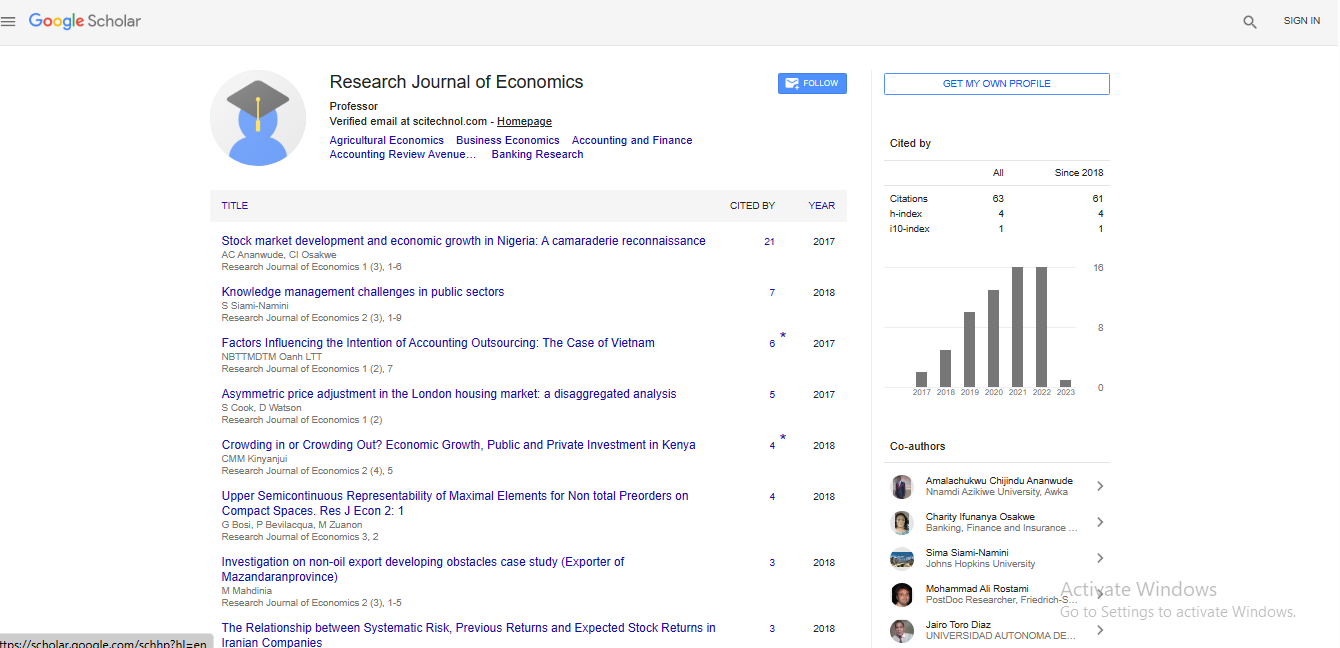Commentary, Res J Econ Vol: 5 Issue: 3
Social Economics
Zsuzsanna Bacsi
Department of Economics and Social Sciences, University of Pannonia, 8360 Keszthely, Deák Hungary.
Keywords: Accounting and Finance,Accounting Review,Avenues of Investment,Banking Research,Economic Growth,Estimation theory,Financial Crisis
Introduction
Social economics is a branch of economics—and a social science—that focuses on the connection between social conduct and economics. Social economics consists of two wide perspectives that, although contrary in their method, may be idea of as complementary. the first, pioneered by way of Nobelist Gary Becker, applies the simple theoretical and implemented gear of neoclassical microeconomics to areas of human behavior now not traditionally considered as a part of economics proper, such as crime and punishment, drug abuse, marriage, and circle of relatives selections. The second one, applies the thoughts of different social sciences, which include sociology, psychology, and identification group studies to subjects of an monetary nature like patron behavior or exertions markets. Those practitioners of social economics use records, contemporary activities, politics, and different social sciences to are expecting social tendencies that would doubtlessly impact the economic system. This strand of social economics is the primary attention of this newsletter
 Spanish
Spanish  Chinese
Chinese  Russian
Russian  German
German  French
French  Japanese
Japanese  Portuguese
Portuguese  Hindi
Hindi 